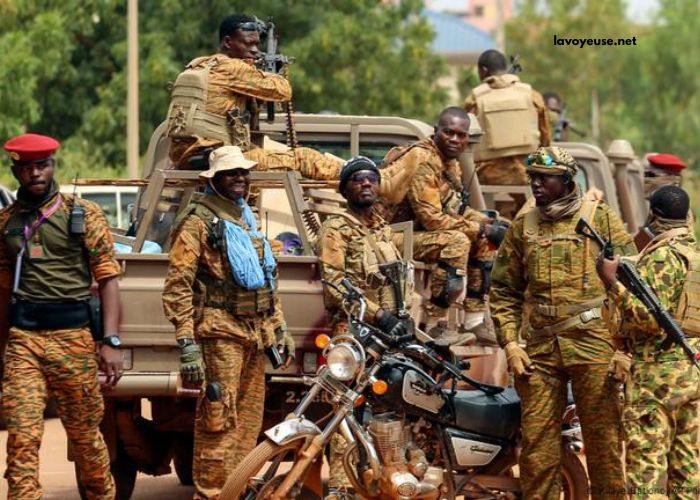In recent years, Attaque Au Burkina Faso Aujourd’hui has become a disturbing trend, as the West African country continues to grapple with escalating violence and instability. Attacks carried out by extremist groups, including al-Qaeda and the Islamic State, have plagued various parts of the country, leading to significant loss of life, displacement of people, and widespread fear. This article delves into the recent developments surrounding these attacks and explores their causes, consequences, and what can be done to address this ongoing crisis.
The situation surrounding Attaque Au Burkina Faso Aujourd’hui remains fluid, with the government, military, and international community trying to respond to the increasingly complex security landscape. In particular, attacks on civilian populations and military targets have intensified in the past few months, creating a climate of uncertainty. The impacts of these assaults are far-reaching, affecting not only Burkina Faso’s internal stability but also the security of the broader Sahel region.
What Are the Causes of Attaque Au Burkina Faso Aujourd’hui?
Understanding the root causes of Attaque Au Burkina Faso Aujourd’hui is crucial to addressing the violence that continues to ravage the nation. The reasons behind these attacks are multifaceted and tied to a complex web of political, social, and economic issues. One of the main factors driving the violence is the growing influence of extremist groups operating in the Sahel region, including groups affiliated with al-Qaeda and the Islamic State. These groups exploit local grievances, weak state institutions, and the porous borders between countries to fuel conflict and instability.
The lack of strong governance and the breakdown of law and order in certain parts of the country have also played a role in the escalation of attacks. Rural areas, where the central government’s presence is minimal, have become hotspots for militant activities. Furthermore, the influx of arms and fighters from neighboring regions has exacerbated the situation, making it even harder for the Burkinabe government and military to regain control.
Another key driver behind Attaque Au Burkina Faso Aujourd’hui is the growing inter-ethnic and community tensions in the country. Extremist groups have taken advantage of these divisions, using them to recruit new members and foster animosity between different ethnic groups. The increasing frequency of these attacks highlights the urgent need for reconciliation and dialogue to address the underlying social divisions.
How Has Attaque Au Burkina Faso Aujourd’hui Affected the Population?
The consequences of Attaque Au Burkina Faso Aujourd’hui on the civilian population are profound and far-reaching. Thousands of people have lost their lives in these attacks, while many more have been injured. The violence has also led to the displacement of a large portion of the population, with hundreds of thousands of Burkinabe citizens fleeing their homes to seek refuge in safer areas within the country or across borders in neighboring nations.
The impact of Attaque Au Burkina Faso Aujourd’hui on the population extends beyond the immediate physical harm. Communities are left devastated, and infrastructure is severely damaged, further hindering access to basic services such as healthcare, education, and clean water. In areas where attacks have been particularly concentrated, there are reports of entire villages being abandoned or destroyed, further compounding the humanitarian crisis.
The psychological toll on the population is also significant. Fear, trauma, and uncertainty have become the norm for many Burkinabe citizens, who now live in constant worry of further violence. The prolonged state of insecurity has had long-term social and economic effects, contributing to a sense of hopelessness among many people, particularly the youth, who see few opportunities for the future.
What Are the Military and Government Responses to Attaque Au Burkina Faso Aujourd’hui?
In response to the escalating violence, the Burkinabe government has implemented a number of military strategies aimed at containing the threat posed by extremist groups. These measures have included increased military operations, the establishment of security zones, and the deployment of forces to high-risk areas. However, despite these efforts, Attaque Au Burkina Faso Aujourd’hui continues to persist, with extremist groups regularly carrying out attacks.
The government’s efforts have also been hampered by resource constraints, as well as the difficulty of coordinating a unified response in such a vast and fragmented country. While some regions have seen success in repelling attacks, others remain vulnerable to extremist influence. There is also growing concern that the military is overstretched and struggling to maintain control over increasingly large swaths of territory.
International support has been critical in the fight against insurgents, with Burkina Faso receiving aid and training from the French military and other international partners. Despite these efforts, the conflict continues to escalate, as the lack of progress on the ground shows the challenges faced by both the Burkinabe government and the international community in tackling the root causes of Attaque Au Burkina Faso Aujourd’hui.
What Role Does the International Community Play in Addressing Attaque Au Burkina Faso Aujourd’hui?
The international community has an essential role to play in addressing Attaque Au Burkina Faso Aujourd’hui and helping to stabilize the situation in Burkina Faso and the wider Sahel region. Countries like France, through its Operation Barkhane, have provided direct military support to the Burkinabe government, helping to train and equip the military forces to counter insurgent groups. Additionally, the United Nations and regional organizations such as the African Union and ECOWAS have provided humanitarian aid and diplomatic support.
However, despite these efforts, the international response has been criticized for being insufficient in addressing the root causes of the conflict. Military interventions, while important, are not enough to bring lasting peace. There is a growing recognition that the international community must also focus on long-term solutions that address the political, social, and economic grievances fueling the violence. Supporting governance reforms, promoting dialogue between ethnic groups, and investing in development initiatives are all key to tackling the broader issues contributing to Attaque Au Burkina Faso Aujourd’hui.
Another challenge facing the international community is ensuring that aid and resources reach those who need it most. Insecurity, logistical challenges, and corruption have hindered the delivery of humanitarian assistance to affected populations. The international community must work closely with the Burkinabe government and local organizations to overcome these barriers and ensure that aid reaches the most vulnerable.
Can Attaque Au Burkina Faso Aujourd’hui Be Prevented?
Preventing Attaque Au Burkina Faso Aujourd’hui requires a multi-faceted approach that addresses both the immediate security concerns and the long-term drivers of conflict. One of the first steps is to strengthen the capacity of the Burkinabe government to maintain security and provide services to its citizens. This includes improving the effectiveness of the military, law enforcement, and intelligence agencies, as well as enhancing the government’s ability to provide basic services in conflict-affected areas.
Furthermore, preventing future attacks requires tackling the root causes of the violence. This means addressing social inequality, political marginalization, and ethnic divisions that have contributed to the rise of extremist groups in the region. The government and international partners must prioritize inclusive governance, where all groups feel represented and have a stake in the country’s future. Providing economic opportunities, especially for young people, is also essential to reducing the appeal of extremist ideologies.
Another crucial factor in preventing Attaque Au Burkina Faso Aujourd’hui is community-based peacebuilding efforts. Local actors, including community leaders, religious groups, and civil society organizations, must be involved in dialogue and reconciliation efforts. Creating a space for these groups to work together can help build trust, reduce tensions, and foster a sense of national unity.
Conclusion
In conclusion, Attaque Au Burkina Faso Aujourd’hui represents a grave challenge to the stability of Burkina Faso and the wider Sahel region. The rise in violence and insecurity is the result of a complex mix of political, social, and economic factors, exacerbated by the influence of extremist groups. While the Burkinabe government and international community have made efforts to address the issue, more must be done to address the root causes of the conflict.
Ultimately, preventing future attacks and ensuring long-term peace will require a comprehensive approach that combines military, political, and social solutions. By strengthening governance, fostering dialogue, and investing in development, it is possible to address the challenges posed by Attaque Au Burkina Faso Aujourd’hui and create a more secure future for the country and its people.

